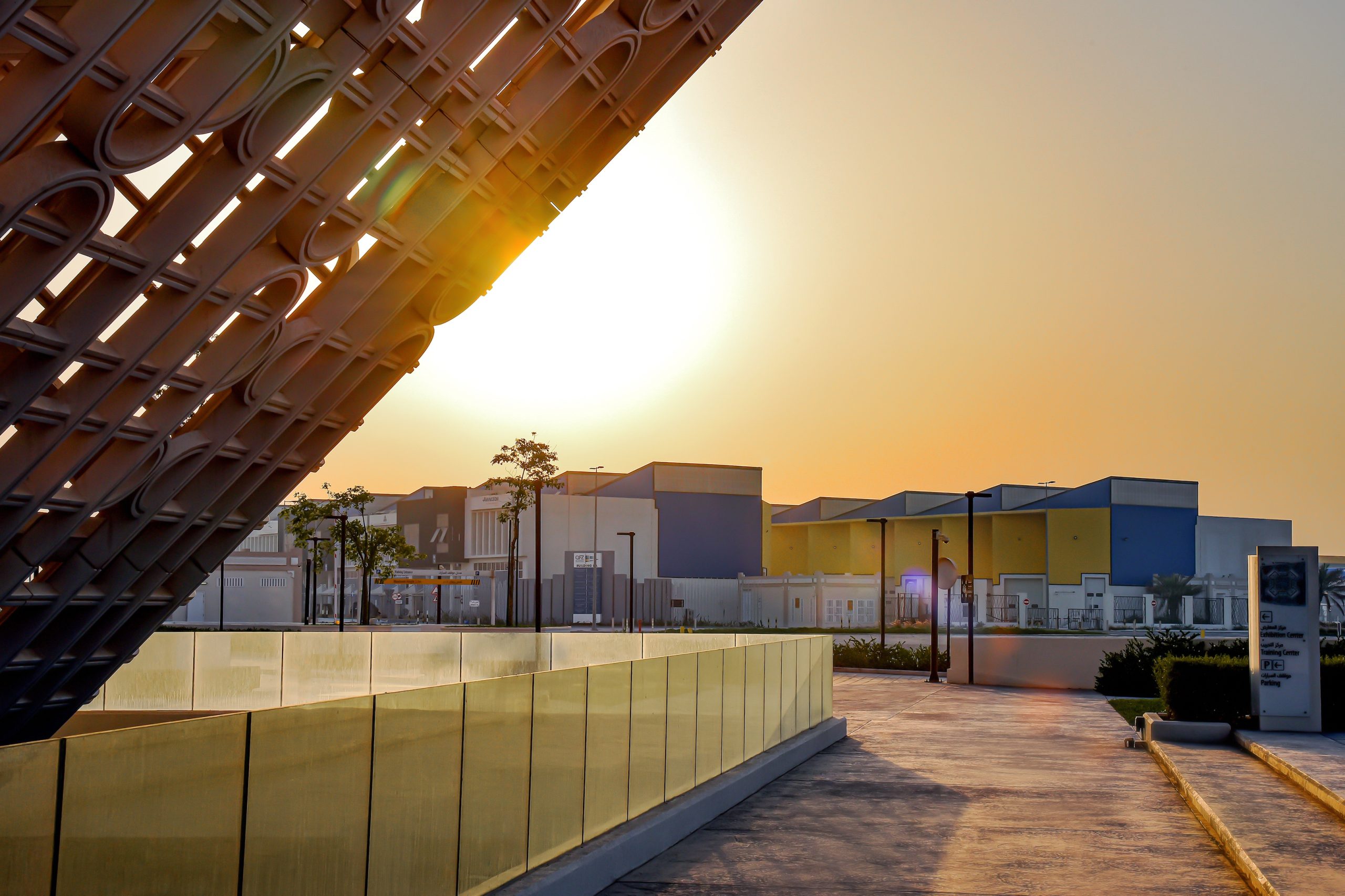أخبار المناطق الحرة
- Home
- News & Events
- Our News
- Article
Our News
البحث عن الأخبار
Search For News
Digital roundtable sheds light on global trade resilience and FDI
Qatar Free Zones Authority (QFZA) co-hosted a digital roundtable in conjunction with The Business Year media group that included some of the world’s leading experts in supply chains and foreign direct investment (FDI), including representatives from United Nations Conference on Trade and Development (UNCTAD), the World Economic Forum (WEF), and logistics experts DHL, Bayer Pharmaceuticals and Reybanpac to examine how global trade can adapt to the new realities presented by COVID19.

His Excellency Ahmad bin Mohamed Al-Sayed, Minister of State and Chairman of Qatar Free Zones Authority (QFZA), said during the digital roundtable that “the true impact of these circumstances may not be truly felt for some time to come, but debates that were already underway over how supply chains can be rebalanced have now become urgent. Cost-efficiency can no longer be the solitary guiding principle of supply chains, and the world must now make sure that supply chains not only deliver value for money but they are also resilient to future circumstances so the global economy can keep moving”.
For Qatar this is not a new debate. During the past few years, the state managed to rapidly diversify its local and global supply chains to keep its economy connected to the world, while maintaining resilience and diversification.
His Excellency Al-Sayed added: “QFZA built one the world’s most advanced digital and logistical ecosystems in its Free Zones. This gives companies investing in the Zones, access to a diverse set of physical and digital entry points into global supply chains, either through its advanced telecommunications infrastructure, or the world spanning air and deep sea ports that allow major companies to maintain their leading positions in the global logistics industry. The Zones also provide flexible and diverse solutions to all companies looking to invest in the State of Qatar, especially the New Economy companies, this is in addition to providing the opportunity to partner with leading Qatari companies such as: Qatar Petroleum, Qatar Airways and the Supreme Committee for Delivery and Legacy”.
Speaking on behalf of the UNCTAD following their recent report on global FDI, Dr. Oktawian Kuc, Investment Policy Officer of the Division on Investment and Enterprise, said “Special Economic Zones remain an invaluable tool for policy makers trying to boost FDI inflows”. He went on to highlight all the indirect benefits that they bring to economies beyond FDI like economic diversification, the shortening of supply chains and employment creation.

The effects of the pandemic on global supply chains have exacerbated an already stressed system suffering under the rising tide of economic nationalism and protectionism. Add to this the emergence of advanced technologies of the New Industrial Revolution (NIR) such as automated distribution and manufacturing hubs, and the world is now rapidly undergoing unparalleled changes in terms of how global supply chains can build in resilience whilst remaining profitable.
Following His Excellency, The Business Year CEO Ayşe Valentin, during additional welcome remarks, commented on the challenges facing global trade and Qatar’s resilience, stating that, “[The Business Year] strongly believes that Qatar, thanks to its strategic geographical location and its economic and commercial flexibility, is set to play a vital role.”
Mr. Amadou Diallo, DHL’s Middle East and Africa CEO, said of the Free Zones: “Qatar Free Zones have the latest technologies and all the required digital and physical infrastructure to optimize our business operations in the Zones”.
With strategically vital sectors like pharmaceuticals and food supplies being especially reliant on technically complex cold-chain logistics to prevent their products’ degradation during transit, Mr. Vincente Andres Wong, Commercial Manager of food wholesaler Reybanpac Ecuador was impressed with the adaptability and resilience of Qatar’s supply chains “Qatar is an excellent getaway to the entire Middle East and Asia regions for Latin American producers.” He also highlighted the beneficial fiscal incentives and supportive trade regulations offered to global agriculture and food and beverages players that allow them to compete with geographically closer producers based in Asia or Europe.
Quentin Descat, Head of Marketing & Marketing Operations Middle East for Bayer Pharmaceuticals, said that Bayer’s production and distribution activities were not as heavily affected as other industries because pharmaceutical logistics has built-in resilience to its supply chains. He went on to say that Qatar Free Zones would be well fitted to host pharmaceutical companies due to the quality of the logistics and technology that would enable the “just-in-time” and “just-in-case” supply chain strategies employed by pharmaceuticals industry.
Speaking more broadly about the strategic importance of bringing more pharmaceutical companies to the Gulf, the CEO of QFZA, Mr. Lim Meng Hui, understood the industry’s concerns about setting up R&D operations in the region: “for the pharmaceutical industry, its success depends on the availability of the appropriate and approved legal frameworks to protect the intellectual property rights of such companies. That’s why the government of Qatar has worked so hard to implement a robust legal framework to protect companies’ intellectual property. We hope that the arrival of companies such as those previously announced by the Free Zones will provide the reassurance needed by the big pharma companies that they can also set up operations here safe in the knowledge that the government of Qatar has enshrined in law the protection of their intellectual property. Beyond this, distribution capacity is paramount for the pharmaceutical industry and the State of Qatar has proven the diversity and resilience of its supply chains that allow products to get markets across the world”.
Dr. Amitendu Palit, Member of the Global Future Council on Trade and Investment at WEF, and Senior Research Fellow at ISAS, National University of Singapore, explained that the unprecedented economic and trade disruption required a unified global response and that countries must resist the urge of protectionist policies if supply chains are to continue functioning effectively for global markets. He hoped that there would be a united response from the international community and that the urge to enact protectionist policies would be resisted in order to prevent polarization of global trade.
A recent Global Competitiveness Report from WEF demonstrated that supply chains are only part of the story when it comes to FDI, and that whilst robust supply chains are a major determinant of FDI flows, they count for little if they are not connected to the fundamental building blocks of a dynamic economy that allow companies access to the facilities, capital and skilled labour needed to establish and grow their enterprises. The WEF report ranked Qatar highly on a number of these key indicators, and QFZ is keen to help businesses capitalize on everything the Zones and Qatar has to offer to help them on their journey to grow their international operations.
Watch the full webinar.
Latest News
- QFZ and Qatar Foundation Sign Partnership Agreement to Advance Climate Action and Sustainable Development in Qatar 02/25/2026
- QFZ Discusses Sustainable Trade and Resilient Connectivity During Participation at World Economic Forum in Davos 01/24/2026
- Marina Marine Services Launches Offshore Marine Services Facility in Qatar’s Free Zones 01/12/2026
- MoU with WuXi Biologics to Bolster Qatar’s Biopharmaceutical Ecosystem 12/02/2025
- Alfardan Automotive Launches Regional Logistical Hub in Qatar’s Free Zones 10/27/2025
Events and webinars
QFZ hosts and participates in events to share expert insights and highlight key opportunities and developments within Qatar and our zones. Learn more about our upcoming events and view highlights from past events here.
Focus news
Discover the latest national and regional developments for our key sectors here.
الأحداث والفعاليات
تستضيف وتشارك هيئة المناطق الحرة في الفعاليات للاستفادة من ومشاركة آراء الخبراء، ولتسلط الضوء على الفرص والمستجدات الرئيسية في قطر والمناطق الحرة. يمكنك التعرف على الأحداث والفعاليات القادمة والاطلاع على الفعاليات السابقة هنا.
الأخبار ذات الصلة بالقطاعات الرئيسية
ابق على اطلاع حول آخر المستجدات المحلية والإقليمية الخاصة بالقطاعات الرئيسية.

